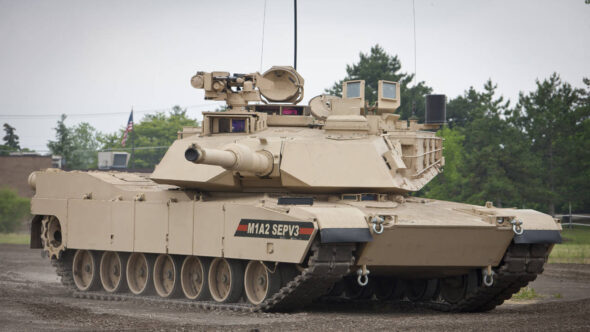The conclusions of the NATO summit are generally positive, but this opportunity has not been used to improve upon problems that severely limit its functioning today, including issues with decision-making, says major general Bogusław Pacek, director of the Institute for Security and International Development in an interview with BiznesAlert.pl.
BiznesAlert.pl: How do you assess the results of the NATO summit in Madrid? Was it a success for the Alliance?
Bogusław Pacek: The results of the Madrid summit give us the right to judge it as very important, or even groundbreaking, in terms of political arrangements meeting. The new strategic concept, in which Russia is openly identified as a threat to the Alliance, China is identified as a challenge, together with all the detailed conlusions, show that this is a guiding concept for the next decade. What is very positive is that Finland and Sweden have agreed to join the Alliance. This is a great achievement, and I feared that the lack of solidarity and opposition from Turkey could spoil the integration and consolidation of NATO. Fortunately, that didn’t happen. The member states have shown great responsibility and understanding.
And militarily?
From a military point of view, however, more could be expected. The military conclusions boild down to increasing the pool of soldiers capable of immediate response to 300 thousand. However, these forces will continue to be stationed where they are now. Today those forces include 40,000 troops. However, no soldier from this group has been deployed since the beginning of the Russian invasion of Ukraine to the eastern flank of the Alliance. Yes, Americans or the British have landed here, however, those were domestic troops, not soldiers from the Alliance. The second element in military terms is increasing the rank of battlegroups to brigade-size units. This is also theoretically a positive move, but as in the case of the rapid reaction forces, these troops are stationed on a daily basis in their home bases. What I am missing from the point on the enlargement of NATO’s response force is the absence of any mention of the preparation of infrastructure and equipment for the possible reception of such a force. It is here on the eastern flank that warehouses should be prepared with weapons, ammunition, which, when the soldiers arrive, could immediately be used. While the 300,000 soldiers may stay in other countries on a daily basis, here we should be ready with a complete logistical support and equipment base, including tanks, artillery, radars, etc. Regular exercises on our territory would also be important. There’s nothing like that yet.
We are also missing more emphasis on air defense. I have the impression that far-reaching caution has been exercised towards the Russian Federation during the summit. Only the leaders of the state know whether this caution is justified.
And what do the conclusions look like from the perspective of Poland?
From our perspective the security of Poland has improved in spite of the mentioned shortcomings. Especially if the Swedes and Finns eventually join NATO. The direct actions taken by Americans also affect our perception of security, but are these decisions appropriate to the crisis and the level of tension that we have today?
So why has the response from our allies been so lackluster?
I think this is due to divergent national interests. The eastern flank states feel the threat is very close. This war is going on right outside our borders, Belarus is attacking us with refugees, new offensive systems are being deployed in Kaliningrad, there is talk of increasing Russia’s nuclear potential in, among others, Belarus. We perceive this threat very realistically. On the other hand, there are Italians, Greeks, Spaniards, Portuguese, who feel less threatened by Russia. The summit showed the leadership of the United States and President Joe Biden. It is the Americans who are setting the direction of the Alliance. In my opinion, NATO’s diminishing role as an alliance in the decision-making process is also a problem. Who is the leader of NATO? Jens Stoltenberg or Joe Biden? Since the beginning of the war between Russia and Ukraine, despite the fact that NATO countries on the eastern flank feel threatened, the organization’s response has been weak.
The most important decisions are made by the US, not by Stoltenberg, not by the Council of the North Atlantic Treaty Organization. As for the Council itself, the summit also failed to reform the decision making process in the Alliance. Today we have 40,000 response troops, but one of the reasons why these soldiers still have not arrived at the eastern flank is the need for consensus. For these troops to be used, all allies must agree. It is difficult to talk about making quick decisions when each of the 30 ambassadors must obtain approval and instructions from their superiors or heads of government. This decision chain is a major weakness of the Alliance. And it’s a shame this summit didn’t change that. From the point of view of military activities, continuous discussions, consensus and trade-offs are not good. If in the case of these even 300 thousand soldiers one country refuses, not just to send its own troops, then the soldiers will not be deployed. We get a little excited about these numbers, but we fail to notice how many issues down the line may turn these forces off by not even deploying them to the battlefield.
So the conclusion is that the summit was more like doom and gloom with only a little sunshine in the mix?
Actually, I would use a flavor allegory and say it was bitter sweet. The summit itself ended positively, there were conclusions, there was an agreement on the accession of new states. However, from a military perspective, I always try to achieve the maximum possible goals. Of course, the summit could have ended dramatically. Also increasing the NATO Response Force from 40 to 300 thousand troops was not a bad move. It will be a huge logistical, training challenge. It is difficult to maintain such a large number of soldiers in a heightened regime. So it is not that the outcome of the summit is negative, but if we ask ourselves what would really frighten Putin and what would stop him, then what has been done is not enough. Now, apparently, the leaders of NATO countries have recognized that the threat to the Alliance from Russia is small, which translates more into decisions about further deterrence than about taking radical steps related strictly to a military, permanent presence in our part of Europe and readiness for defense.
Interview by Mariusz Marszałkowski









